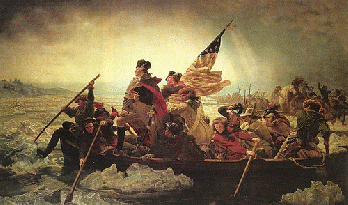The Constitution does not guarantee or protect poverty!
On this anniversary of our independence as a nation I have re-examined our founding documents, our basic laws, to determine where they provided for poverty. There are no such provisions.
The United States Constitution says it was formed for a "more perfect union, establish Justice, insure domestic Tranquility, provide for the common defense, promote the general Welfare, and secure the Blessings of Liberty to ourselves and our Posterity" It does not mention poverty.
The United States Constitution grants Congress the power "to pay the Debts and provide for the common Defense and general Welfare of the United States...." In order to carry out these duties it gave Congress specific powers:
To borrow Money on the credit of the United States;
To regulate Commerce with foreign Nations, and among the several States, and
with the Indian Tribes;
To establish uniform laws on the subject of Bankruptcies throughout the United
States;
To coin Money, regulate the Value thereof, and of foreign Coin, and fix the Standard
of Weights and Measures.
No mention was made of creating or promoting poverty, just that Congress could relieve it through regulating trade, monetary laws and bankruptcy. None of the amendments so far have preserved the rights to create poverty or protected it. Was it, perhaps, in the Articles of Confederation, our original Constitution? That provided for: "a firm league of friendship with each [state], for their common defense, the security of their liberties, and their mutual and general welfare, binding themselves to assist each other, against all force offered to, or attacks made upon them, or any of them, on account of religion, sovereignty, trade, or any other pretense whatever."
I could find nothing in that document providing for the guarantee or support of
poverty.
Well maybe it is in the Declaration of Independence, because, unless you
are super rich in the United States, you never know when circumstances will
reduce you to poverty. The Declaration of Independence clearly states its
purpose:
"We hold these truths to be
self-evident, that all men are created equal, that they are endowed by their
Creator with certain unalienable Rights, that among these are Life, Liberty and
the pursuit of Happiness"That to secure these rights, Governments are
instituted among Men, deriving their just powers from the consent of the
governed"That whenever any Form of Government becomes destructive of these
ends, it is the Right of the People to alter or to abolish it, and to institute
new Government, laying its foundation on such principles and organizing its
powers in such form, as to them shall seem most likely to affect their Safety
and Happiness."
Do our basic documents say nothing about individual wealth and power? The
Constitution says we are formed to insure domestic tranquility, promote the
general Welfare, and secure the Blessings of Liberty. Poverty does none of
these things and Congress is given the power to borrow money, regulate
commerce, to coin money and provide bankruptcies to avoid these outcomes.
But can't society just allow some to get rich and powerful at the expense of
all the rest? Is not that enshrined in the Constitution and guaranteed as the
American Way? Well, no. It never was.
From the very beginning, from those Articles of Confederation presented in the Continental Congress on July 12, 1776, both the individual States and the United States were absolutely prohibited from creating or supporting any supper class, oligarchy, plutocracy (in the eighteenth century language, any nobility). That is one possible reason why George Washington would not accept a crown if offered, as Congress had no power to convey or create it.
Jefferson could speak of the "rights of man", the great
equality being promoted at the time. But Congress had to express it legally and
so the absolute prohibitions on the power "to create Titles of
Nobility" were included in Article VI of the Articles of Confederation,
and later taken directly into the Constitution without debate in Article 1,
Sections 9 and 10. As they are absolute prohibitions, not on Congress, but on
the United States and States, they even apply to treaties. For the lawyers and
historical sticklers among you, see The Cornerstone Brief and Secrets of the Forgotten
American Revolution.
(Note: You can view every article as one long page if you sign up as an Advocate Member, or higher).






